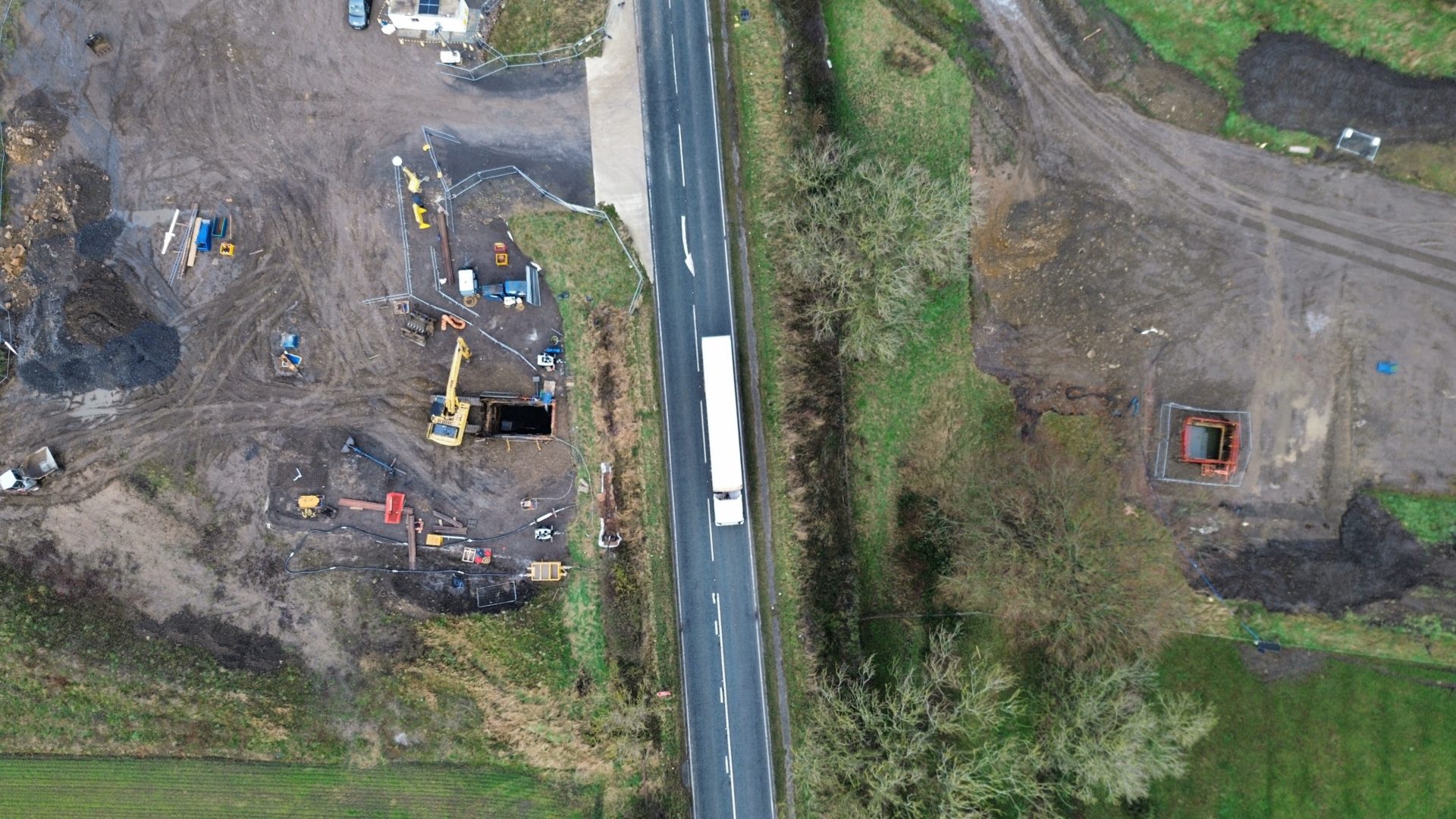Engineers constructing a new £155m water pipeline have started work on crossing one of the region’s busiest roads.
However, the team delivering Northumbrian Water’s Project Pipeline: County Durham and Tees Valley are laying the pipework under the A68 without impacting on road users.
Due to the potential disruption of traffic management or even a closure of the road on Bildershaw Bank, near West Auckland, specialist contractors have been employed to tunnel under the road, avoiding the need to dig trenches in the carriageway.
The construction of Phase 1 of the 57km pipeline is being carried out by Northumbrian Water’s partner, Farrans Construction, and specialists from HB Tunnelling have been brought in for the A68 crossing.
Following preparation work on either side of the road, engineers are now using a micro-tunnelling machine to enable the pipes to pass beneath the carriageway.
The technique will take between four and six weeks to pass 60 metres in length under the ground, creating a 1200mm diameter tunnel that will connect specially-constructed “drive” and “reception” pits that enable the work.
Northumbrian Water’s Project Manager, James Dawes said:
“We are nearing the end of construction of Phase 1 of this pipeline, which is 32km long and connects our water treatment works at Lartington, near Barnard Castle, with treated water storage reservoirs at Whorley and Shildon.
“Crossing the A68 represents one of the final elements of this phase of construction, and is something that has been planned with care, taking into consideration the need to minimise road disruption.
“Using micro-tunnelling removes any impact on road users, and the topography of the land allowed for us to take this option, so we are glad to be able to avoid working within the A68 this way.”
Dave Mellor, Contract Director, Farrans Construction, said:
“Project Pipeline: County Durham and Tees Valley will have an integral role in providing resilience in the water supply and it is a technically challenging project to deliver, crossing under rivers and roads. We are working collaboratively with our client and our stakeholders to do this with minimal disruption by bringing innovative civil engineering techniques to the site.
“Micro-tunnelling has removed the need for road closures in this busy stretch of the carriageway so that traffic can continue to flow while our engineers work on placing pipework below the ground. We would like to thank the local community for their ongoing patience and interest in this exciting project as we move closer to completion.”
Completion of the construction of the Phase 1 pipework will be followed by work this year to fully reinstate the land along the route to its original state. Phase 2 is expected to be constructed between summer 2025 and 2028, subject to planning approval.



